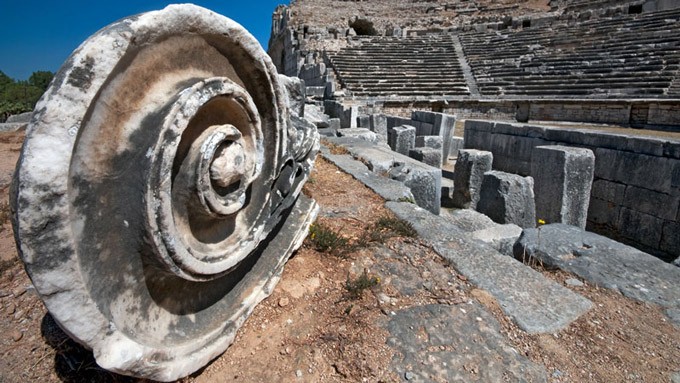
Milet (Miletus in antiquity) is stuated on the road between Didim and Soke, near the Balat Villiage of Didim. Miletus is renowned for the famous philosophers it produced in antiquity. Foremost among them is Thales, who has been recognized as a precursor of philosophy and the sciences. Thales contributed greatly to the development of the natural sciences, astronomy, mathematics and geometry. He correctly calculated the solar eclipse of 585 BC, and developed a theorem that is still used today. Another important philosopher of Miletus is Anaximander who developed ideas about the formation of the universe. His disciple, the philosopher Anaximenes, contributed to the idea of evolution. These philosophers were the pioneers who laid the foundation of the Milesian School, which later formed the basis of the thoughts developed by philosophers such as Socrates, Plato, and Aristotle. Miletos maintained its prime position in science and culture for thousand of years. The great 6th century architect, Isodoros, who built the magnificent Ayasofya ( Hagia Sophia) in İstanbul, was born and raised in the city. Maritime trading propelled the development of Milet and it became an important center of commerce. Many ancient structures have reached our times in quite good order. The most prominent of them are the Grand theatre, with seating capacity for nineteen thousand people, the Temple of Athena, and the Faustina Bath, which was one of the largest of ancient bathhouses. The city’s agora, ports, and temples are also fascinating. Milet maintained its strategic importance for centuries and eventually came under Seljuk dominion. After the collapse of the Seljuk Empire, it became the capital of Menteseogullari Principality. Later the city was incorporated into the Ottoman Empire. The most important structure dating from the era of Turkish domination in Milet is the Ilyas Bey Mosque, which was built in 1404.




